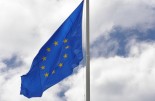NN IP: How is Covid-19 accelerating shifts in the corporate landscape?
NN IP: How is Covid-19 accelerating shifts in the corporate landscape?

By Maarten Geerdink, Head of European Equities at NN Investment Partners
The Covid-19 pandemic could spark consolidation or domination. Regulatory environments in Europe and the US will shape how consolidation trends play out. Which model will be best suited to deal with the current crisis?
Economic or fundamental shocks often serve as the catalyst to accelerate existing trends. They can speed up the adoption of technologies or practices, or fast-forward the inevitable demise of companies or industries. Companies that can survive this transition are often well-positioned to capture market share from competitors and flourish in the recovery.
A shock can also give rise to capacity rationalisation. For example, the overstored nature of brick-and-mortar retail was already an obvious problem before the Covid-19 crisis, and the pandemic could hasten more bankruptcies and a substantial reduction in total retail square footage.
Increased consolidation need not come through mergers and acquisitions. In many cases, the best operators will simply pick up market share from their weaker peers. This is likely to favour better-capitalised companies whose smaller competitors typically lack the liquidity to survive a long-duration impact to their business. Ultimately, the global trend towards market share concentration could very well continue, with the best-in-class (and usually larger) companies picking up share within an industry.
Overcapacity may make a case for consolidation in stressed cyclical industries such as leisure and travel. However, with many share prices rallying from their March lows to record highs, valuations are now less enticing for potential acquirers. Does this mean that the potential for aggressive consolidation is no longer there? Have markets rebounded so quickly that underlying dynamics are not reflected in current prices? Or are investors looking through the current economic weakness and expecting a full recovery?
The pandemic could also spark domination in certain sectors. The big tech names posted record second-quarter earnings. Facebook, Google, Netflix, Apple and Amazon have little competition in their subsectors and are capitalising on the shift towards online consumerism. The scalability of technology could lead to a winner-takes-all scenario where a single dominant provider emerges. This winner's hold over the market and ability to generate monopolistic profits keeps new entrants at bay, while its almost endless access to capital markets allows it to survive and thrive as smaller competitors struggle to weather market disruptions.
What might this trend mean for competition and the overall market structure? Will there still be room for innovation and new entrants, or are we transitioning to a status quo that could become impossible to shake?
The Atlantic divide
The potential for consolidation in any sector or market depends largely on the regulatory and policy frameworks within which it operates. Both the US and EU have authorities that safeguard competition, and with that, innovation. But their approaches are very different and are leading to very different outcomes.
Since its inception, the EU competition authority has largely focused on an efficient internal market system by being very critical of state aid used to bolster national champions at the expense of better competition. Following the Covid-19 crisis, we wonder whether the competition authority will stay disciplined in its approach or if it might leave more room for consolidation. In the latter scenario, it may take a page from the US playbook, which seems much more tolerant of market dominance in certain sectors. Thus far, this approach has led to global winners and worldwide dominance.
The airline sector offers a prime example of the regions’ differing approaches. Passenger volume declined by more than 90% in April and May. All major airlines struggled with significant cash flow burn and faced acute liquidity constraints. The operational responses looked very similar in the US and Europe, with many workers being furloughed and capacity being aggressively reduced to offset the cash burn. However, the government-led responses differed greatly, highlighting the much more stakeholder-oriented approach of European governments versus the US government’s laissez-faire approach.
The US and European governments have an interest in the well-being of the airlines. The difference lies in their priorities and the type of influence they wield. The European governments, which are focused on the well-being of multiple stakeholders, own shares with voting rights that enable them to influence corporate decision-making. Conversely, the US government owns warrants, which don’t provide any say in the business but do provide a positive pay-off when the share price recovers.
Governments in Europe imposed heavy additional rules in order for the legacy airlines to recapitalize, including measures that focus on providing positive outcomes for other stakeholders but might hamper short-term growth. Airlines were asked to reduce night flights and to cut CO2 emissions per passenger in half by 2030, among other requirements. If successful, this approach could enable European airlines to become leaders in sustainable air travel, which would yield longer-term benefits for the airlines as well as all stakeholders.
These differing methods of intervention exemplify the Atlantic divide between the shareholder (US) and stakeholder (Europe) approach, which now seems even more explicit. A third alternative is the “stateholder” model – in other words, the state dictates what happens and is the primary beneficiary. This is prevalent in Asia, specifically in China, which has a wealth of state-owned enterprises (SOEs).
The Chinese state exercises far more control over the corporate sector than Western governments do. This is not just because of its majority ownership in the large SOE sector; it is also due to a broader set of policy tools that the government can wield to control its economy. Situations like the European airline bailout, which come with environmental requirements attached, are therefore not likely to occur in China, where the government is the majority owner of the three largest airlines. If the Chinese authorities want to move an industry in a certain direction, they have access to other effective means to achieve their ends, such as directing firms to invest in certain areas.
Will Covid-19 fundamentally change the corporate landscape?
With the acceleration in existing trends brought about by the Covid-19 crisis, an increase in consolidation is probably inevitable. This is particularly the case if Europe takes a more benign view of further consolidation in the wake of the crisis, but it could also lead to monopolies in certain sectors in the US. Once the dust of the lockdown settles, a flurry of activity could ignite.
We see potential for consolidation in several sectors. The European travel market, as discussed above, is deeply fragmented along national lines, and the strict rules attached to bailout funds may make it difficult for airlines to survive. If governments decide to stop supporting their ailing national carriers, a wave of consolidation across Europe could follow.
European telecom operators also remain very fragmented. Only a handful of relevant players are left in the US and China, whereas Europe has more than 30 significant telecom operators. This alone makes the European operators less profitable and less able to invest in new and better services than their global peers. The expansion of 5G service over the next five years means that telecom operators that fail to invest in the required technology risk permanently falling behind.
The European Parliament has already sought to quantify the potential benefits of decreased fragmentation. It found that the EU economy would be 2.8% or EUR 415 billion larger with a digital single market and 1.7% or EUR 250 billion larger with an integrated energy market. The gains mainly come from economies of scale and reduced transaction costs. Against the backdrop of an ever-larger single European market, the rationale for consolidation becomes more compelling.
Does the Covid-19 crisis provide an unmatched opportunity for European corporates to further consolidate and take up the challenge of competing on a global scale with US and Chinese companies? Does it offer strong upside for increasing profitability due to scale effects that can be reinvested in profitable growth? Or will Europe remain fragmented and in some areas too small to handle large investments such as the transition to 5G?
Consolidation following the Covid-19 crisis will probably not be limited to Europe. Although the US tech sector is largely consolidated, it could tip irreversibly into a monopolistic structure over the coming years. With a tight grip on their domain and no real competition, Facebook, Amazon, Netflix and Google have seen their share prices rise strongly throughout the pandemic.
They are coming out of this crisis stronger than ever and with structural changes working in their favour. Their deep pockets also enable them to acquire or out-innovate any new entrant that begins to pose a threat, creating a vicious cycle whereby it becomes impossible to challenge them. The main question is whether these firms will be allowed to operate as quasi-monopolies or if they will face a backlash against their perennial dominance.
Profit maximisation: shareholder versus stakeholder
As Europe recovers from the Covid-19 crisis, European companies seem to be embracing the stakeholder model in a quid pro quo, with governments providing ample liquidity facilities, furlough schemes and tax breaks, while companies invest in their employees and commit to more sustainable practices. Social factors are likely to receive more attention from investors; these factors already underpin our responsible investment approach. How a company treats its staff, suppliers and customers and whether it pays its fair share of taxes might influence consumers’ perceptions and in turn their patronage. Governance factors could also enter the limelight, especially if governments take a more active role in the ownership structure.
The disruption caused by Covid-19 is unlikely to lead to increased regulation in the US. US corporations that returned significant cash flow to equity-holders have been criticised throughout the pandemic, especially those that also sought aid. Dividend payments and share buybacks offer no tax benefit to companies, so the government has limited ability to restrict these practices. In this context, we view government policy (largely fiscal policy, but also encompassing other policy levers) as more impactful than regulation.
In the short term, companies will probably remain focused on surviving and preserving liquidity, which could lead to a better balance between shareholders and stakeholders as companies seek to repair their balance sheets. In the medium term, profitability may suffer due to higher debt servicing costs and lower margins as firms reshore and diversify their operations. Will shareholders demand a more cautious approach to balance sheet optimisation? Will bondholders demand higher equity buffers, and are equity investors nervous about too much debt?
Above all, which model will be best suited to deal with the current crisis: stakeholder, shareholder or stateholder?
The Covid-19 crisis is likely to result in an acceleration of current trends, as the biggest get bigger and the smallest are either taken over or wiped off the map. How this plays out on both sides of the Atlantic will depend largely on the regulatory and consumer response. Will Europe be able to export the stakeholder model to the rest of the world? Will the financial benefits of embracing a stakeholder approach become apparent, or will we fall back on profit maximisation and purely shareholder-focused management?








